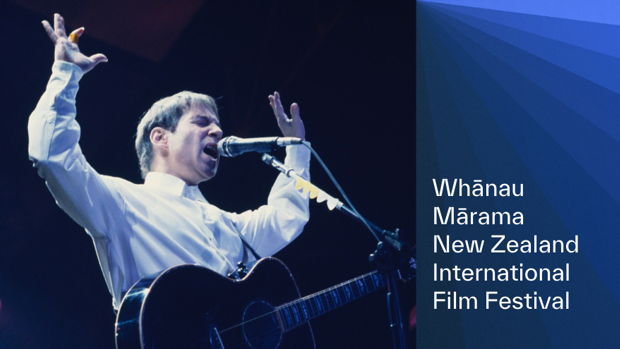In Restless Dreams: The Music Of Paul Simon – Dir: Alex Gibney (13th Floor/NZIFF Film Review)
Doco-meister Alex Gibney gives the life and music of Paul Simon an exhaustive look in this meticulously-made movie titled In Restless Dreams: The Music Of Paul Simon.
Gibney, who is known for politically-charged films such as Enron: The Smartest Guys In The Room, Citizen K and We Steal Secrets: The Story Of Wikileaks is no stranger to music docos, having already dealt to Frank Sinatra, James Brown and Fela Kuti.
And he’s not afraid to give his subject matter the time and attention it deserves. His previous film, about Boris Becker, runs at 206 minutes and this one is three minutes longer.
But with a career that stretches back to the 1950s and is still going today, Paul Simon deserves the screen time as much as anyone.
One could be tempted to put this film in the same category of self-serving history-rewrites as the recent Beach Boys documentary where Mike Love attempts to build himself up at the expense of Brian Wilson or May Pang’s The Lost Weekend, where Lennon’s former lover gives her side of the story over Yoko’s.
And to be fair, Paul Simon does take this opportunity to give his own side of the story when it comes to his complex relationship with Art Garfunkel, who he’s known since they were 10, but fell out with after their biggest success, the Grammy Award winning Bridge Over Troubled Waters in 1970.
Gibney finds Simon recording a new album, to be titled Seven Psalms, in Texas in 2021 and those sessions serve as a jumping off point for a collection of archival interviews, footage and contemporary comments that start with Paul and Art as Tom & Jerry in high school.
The director captures the joy that this middle class Jewish kid in Queens feels when he hears Elvis Presley, doo-wop and The Everlys on the radio. Now Paul was never gonna be Elvis, but he and Artie found that they could be a version of the Everly Brothers and they scored a minor hit with Hey Schoolgirl in 1957.
Now it’s a long way from there to Graceland, but that’s the source of the film’s other high water mark…the footage of Simon and his mixed-race band performing You Can Call Me Al in Zimbabwe in 1987…and being called on by the ecstatic audience to play the song one more time, just to have another soul-freeing dance.
There are plenty of songs and stories along the way and Gibney doesn’t shy away from the tough stuff…the rift between Simon and Garfunkel, the failed marriage with Carrie Fisher or the failed movie that was One Trick Pony. In the case of the latter, it feels like Simon used that failure to give himself license to make Graceland, which at the time, with accusations of cultural appropriation, was also a bold move.
As a filmmaker, Alex Gibney proves to be an excellent storyteller and editor…although one could make a case for not needing so much of the Seven Palms footage.
And as lengthy as In Restless Dreams is, there are still holes…hardly anything about 1973’s platinum-selling There Goes Rhymin’ Simon and some contemporary comments from Garfunkel would have been welcome.
In the end, In Restless Dreams makes a strong case for Paul Simon as America’s greatest post-WW2 songwriter. Personally, my money is on Bob Dylan, but Simon certainly has more hits and he is still a force to be reckoned with.
Marty Duda
In Restless Dreams: The Music Of Paul Simon plays next month at the New Zealand International Film Festival. Click here for tickets and showtimes
